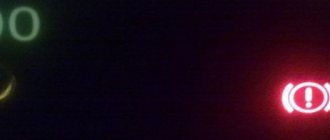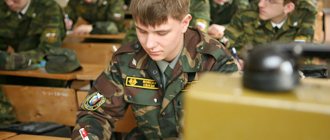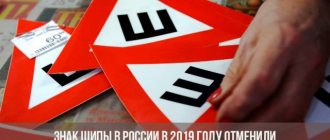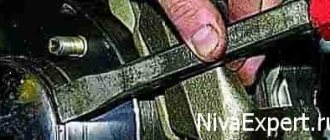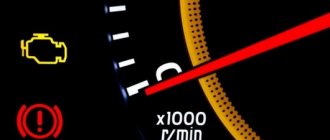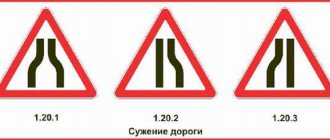Excerpt characterizing the exclamation point
– Or perhaps this consoles your Excellency? - said Yakov Alpatych with a sedate look, pointing at the old people with his hand not tucked into his bosom. “No, there’s little consolation here,” Rostov said and drove off. - What's the matter? - he asked. “I dare to report to your excellency that the rude people here do not want to let the lady out of the estate and threaten to turn away the horses, so in the morning everything is packed and her ladyship cannot leave.” - Can't be! - Rostov screamed. “I have the honor to report to you the absolute truth,” Alpatych repeated. Rostov got off his horse and, handing it over to the messenger, went with Alpatych to the house, asking him about the details of the case. Indeed, yesterday’s offer of bread from the princess to the peasants, her explanation with Dron and the gathering spoiled the matter so much that Dron finally handed over the keys, joined the peasants and did not appear at Alpatych’s request, and that in the morning, when the princess ordered to lay money to go, the peasants came out in a large crowd to the barn and sent to say that they would not let the princess out of the village, that there was an order not to be taken out, and they would unharness the horses. Alpatych came out to them, admonishing them, but they answered him (Karp spoke most of all; Dron did not appear from the crowd) that the princess could not be released, that there was an order for that; but let the princess stay, and they will serve her as before and obey her in everything. At that moment, when Rostov and Ilyin galloped along the road, Princess Marya, despite the dissuading of Alpatych, the nanny and the girls, ordered the laying and wanted to go; but, seeing the galloping cavalrymen, they were mistaken for the French, the coachmen fled, and the crying of women arose in the house. - Father! dear father! “God sent you,” said tender voices, while Rostov walked through the hallway. Princess Marya, lost and powerless, sat in the hall while Rostov was brought to her. She did not understand who he was, and why he was, and what would happen to her. Seeing his Russian face and recognizing him from his entrance and the first words he spoke as a man of her circle, she looked at him with her deep and radiant gaze and began to speak in a voice that was broken and trembling with emotion. Rostov immediately imagined something romantic in this meeting. “A defenseless, grief-stricken girl, alone, left at the mercy of rude, rebellious men! And some strange fate pushed me here! - Rostov thought, listening to her and looking at her. - And what meekness, nobility in her features and expression! – he thought, listening to her timid story. When she spoke about the fact that all this happened the day after her father’s funeral, her voice trembled. She turned away and then, as if afraid that Rostov would take her words for a desire to pity him, she looked at him inquiringly and fearfully. Rostov had tears in his eyes. Princess Marya noticed this and looked gratefully at Rostov with that radiant look of hers, which made one forget the ugliness of her face. “I can’t express, princess, how happy I am that I came here by chance and will be able to show you my readiness,” said Rostov, getting up. “Please go, and I answer you with my honor that not a single person will dare to make trouble for you, if you only allow me to escort you,” and, bowing respectfully, as they bow to ladies of royal blood, he headed to the door. By the respectful tone of his tone, Rostov seemed to show that, despite the fact that he would consider his acquaintance with her a blessing, he did not want to take advantage of the opportunity of her misfortune to get closer to her. Princess Marya understood and appreciated this tone. “I am very, very grateful to you,” the princess told him in French, “but I hope that all this was just a misunderstanding and that no one is to blame for it.” “The princess suddenly began to cry. “Excuse me,” she said. Rostov, frowning, bowed deeply again and left the room. - Well, honey? No, brother, my pink beauty, and their name is Dunyasha... - But, looking at Rostov’s face, Ilyin fell silent. He saw that his hero and commander was in a completely different way of thinking. Rostov looked back angrily at Ilyin and, without answering him, quickly walked towards the village. “I’ll show them, I’ll give them a hard time, the robbers!” - he said to himself. Alpatych, at a swimming pace, so as not to run, barely caught up with Rostov at a trot. – What decision did you decide to make? - he said, catching up with him. Rostov stopped and, clenching his fists, suddenly moved menacingly towards Alpatych. - Solution? What's the solution? Old bastard! - he shouted at him. -What were you watching? A? Men are rebelling, but you can’t cope? You yourself are a traitor. I know you, I’ll skin you all... - And, as if afraid to waste his reserve of ardor in vain, he left Alpatych and quickly walked forward. Alpatych, suppressing the feeling of insult, kept up with Rostov at a floating pace and continued to communicate his thoughts to him. He said that the men were stubborn, that at the moment it was unwise to oppose them without having a military command, that it would not be better to send for a command first. “I’ll give them a military command... I’ll fight them,” Nikolai said senselessly, suffocating from unreasonable animal anger and the need to vent this anger. Not realizing what he would do, unconsciously, with a quick, decisive step, he moved towards the crowd. And the closer he moved to her, the more Alpatych felt that his unreasonable act could produce good results. The men of the crowd felt the same, looking at his fast and firm gait and decisive, frowning face.
When to use an exclamation point in a sentence
An exclamation point should be placed at the end simple sentence if it is pronounced with a special, exclamatory intonation.
However, some sentences that are pronounced with increased emotional overtones may allow double punctuation:
“What a man!” (exclamation)
“What kind of person?” (question)
In such cases, the choice of sign depends on the prevailing emotion. If interrogative and exclamation colors are equal and equally strong, then it is allowed to use two characters simultaneously, for example:
“Who dares to tell me that here I am in a foreign land?!” (A.A. Akhmatova)
In addition, to show emotionally impetuous speech, it is allowed to use an exclamation mark after each homogeneous term . However, they must be written with a lowercase letter, not a capital letter:
“I rejected everything: laws! conscience! faith!” (A.S. Griboedov)
If a simple sentence is complicated by interjections or words-sentences no and yes, then they are highlighted with an exclamation mark, for example:
"Oh! How beautiful it is here!”
It’s also useful to know: When to use a dash
Exclamation mark and direct speech
Sentence structures:
- A: “P!”
And he told me: “Let's go!”
- "P!" − a. (no comma!)
"No need!" - she repeated again.
- "P! - a, - p!”
"Hello!" - he told her with a slight grin, - “glad to see you!”
- "P! - A. - P."
“It’s time, Anya!” - said Lucy. - “The train leaves in twenty-five minutes”
- “P, − a. - P!"
“Well,” she answered quietly. “Now everything is clear to me!”
- A: “P!” − a.
Those about whom my grandmother often said: “You need to drive them out with a filthy broom!” - They began to visit my house often.
An exclamation mark makes dry written speech more emotional, lively, and real. However, you shouldn’t abuse it either, otherwise there is a possibility of turning words and text into hysteria. In this regard, it is recommended to avoid using triple exclamation marks in writing, as they make the speech sound “shrill” or too “commanding”.
That is why it is important to know the basic rules for using such a seemingly simple punctuation mark as an exclamation mark. Everyone knows that competent speech (written and oral) is the key to a speaker’s success.
Example sentences with exclamation point
Here are some cases when this punctuation mark is used:
“How beautiful is today’s sunset!”
– joy, admiration for nature.
“Be sure to call me when you get home!”
– here it’s not just a request, the speech conveys anxiety or a reason why failure to fulfill the request may lead to some difficulties.
"Dear friends! I want to congratulate you on the upcoming holiday!”
- address and congratulation; on special occasions, an exclamation mark is always used when writing.
“Do you really think that I will believe this?!”
– an emotional interrogative sentence, one hears surprise and a question at the same time.
Source of the article: https://nauka.club/russkiy-yazyk/punktuatsiya/vosklitsatelnyy-znak.html
When did the exclamation mark first appear?
Groos
The punctuation system of European languages appeared in the 2nd – 1st centuries. BC e. Its appearance is associated with the names of Aristophanes of Byzantium, Aristarchus and Dionysius of Thracia. This system received its modern appearance thanks to the research of Aldus Manutius. The need for punctuation marks began to be acutely felt in connection with the advent and development of printing (XV-XVI centuries). In the mid-15th century, the Italian typographers Manutius invented punctuation for European writing, which was adopted in basic outline by most European countries and still exists today. Punctuation marks did not come to the Russian language all at once and not all at once. The oldest sign is the dot, followed by the comma and all other signs. As for the exclamation mark, I have not been able to find out when it was first used in written text. But as for the rules for setting this sign in the Russian language, they were first defined by Mikhail Vasilyevich Lomonosov in “Russian Grammar” (1755). However, the exclamation point was known earlier - this is also a fact. So, Meletiy Smotritsky (1619) and V.E. Adodurov (1731) mention it in their grammars, where it is written that the EXCLAMATION MARK IS MARKED TO EXPRESS AN EXCLAMATION (SURPRISE).
An exclamation mark ( ! ) is a punctuation mark that is placed at the end of a sentence to express amazement, a call for a strong feeling, excitement, etc. It can be doubled and tripled to express greater expression, combined with a question mark for a question-exclamation (according to the rules of Russian In punctuation, a question mark is written first) and with an ellipsis (in Russian typography, an ellipsis after an exclamation mark has not three, but two dots). In relation to Church Slavonic and ancient Russian writing, the exclamation mark is called amazing. The so-called satirical exclamation mark, enclosed in brackets and placed after a word or statement, indicates the absurdity or incorrectness of what was said. Today we use the “Rules of Spelling and Punctuation” adopted in 1956.
Oleg Tkachev
Until the end of the 15th century, texts in Russian were written either without spaces between words, or were divided into undivided segments. Around the 1480s, the period appeared, and in the 1520s, the comma. The semicolon, which appeared later, was initially also used to mean a question mark. The next punctuation marks were question marks and exclamation marks. In the “Grammar of Literature” by Melenty Smotrytsky (1619), the first paired punctuation mark appeared - parentheses. By the end of the 18th century, dashes were used (Nikolai Mikhailovich Karamzin was the first to use them), quotation marks and ellipses.

